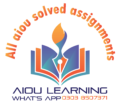Course: Educational Psychology and Guidance (6501) Semester: Autumn, 2022
Level: MA/M.Ed
ASSIGNMENT No. 1
Q.1 How educational psychology helps the teachers in teaching effectively. Discuss critically with the help of relevant examples form you own context.
It’s a specialized field or area that lets us study how people think as they relate to their educational setting.
Throughout this article, you will learn more about Educational Psychology, especially about how Educational Psychology helps teachers.
Educational psychology can be said to be applied to psychology, as I explained in my previous article.
Benefits of Educational Psychology to a Teacher:
The purpose of this article is to show you how educational psychology can be applied in various contexts and to explain how educational psychology can be helpful to a teacher in school?
My aim is to explain how educational psychology can aid a teacher in various areas.
A recent essay I wrote focused on the purpose and function of educational psychology.

Q.2 Explain the concept and nature of cognitive development and also describe Piaget theory of cognitive development in your own words.
Cognitive Development
Children grow and develop rapidly in their first five years across the four main areas of development. These areas are motor (physical), language and communication, cognitive and social/emotional.
Cognitive development means how children think, explore and figure things out. It is the development of knowledge, skills, problem solving and dispositions, which help children to think about and understand the world around them. Brain development is part of cognitive development.
As a parent, it is important to foster your child’s cognitive development as soon as he/she is born because doing so provides the foundation for your child’s success in school and later in life. For example, research shows that children who can distinguish sounds at six months of age are better at acquiring the skills for learning to read at four and five years of age.
To promote your child’s cognitive development, it is important that you actively engage in quality interactions on a daily basis. Examples include:
Q.3 Describe different aspects of Personality Development in adolescence. How social learning theory would guide a teacher regarding Personality Development of learners.
Personality Development
I have described Personality Development as the process by which a pattern of behaviour, attributes and attitudes are developed in an individual.
All the things that goes into making this individual unique and different from others is personality development.
There are a several things to be considered when we talk about personality development as there are no two individuals that are the same.
We may look the same and may have had similar experiences in life but we are all unique in our own ways.
Our reactions and personality development process would be different. People who are brought up in the same household will develop their own peculiar pattern of reacting and responding various situations they face.
Relations also who may resemble each other physically are still different and unique in their own way.
The attributes of a person make him or her special but there are various factors that contribute to the type of personality that is formed.
Q.4 Write brief but comprehensive note on the followings:
· Principles of Learning
Research in the learning sciences has produced massive amounts of information on the brain, intelligence, and the learning process. Because the education system and our learning processes are complex, research provides no silver bullet to improve our schools.
There are, however, key principles that emerge when reviewing the literature on relevancy, engagement, and contemporary theory about intelligence and learning. While not comprehensive, the following list can can help educators take a research-backed approach to supporting learners:
1. Learning is developmental. Based on the physical development of the brain, there’s a logical progression to how people develop skills and learning habits.
2. Individuals learn differently. People learn at their own pace, with different methods and strategies for acquiring and processing information.
3. People learn what is personally meaningful to them. Motivation increases when people can see how new knowledge and skills can be applied to their personal life and work.
4. New knowledge is built on current knowledge. Accurate prior knowledge provides a strong foundation for learning; however, inaccurate or insufficient prior knowledge can make learning more difficult. People learn by connecting newly acquired information with prior knowledge. If those connections are well organized, knowledge can be retrieved and applied more readily.
5. Learning occurs through social interaction. When learning offers opportunities for active response and exchange among peers and experts, it is more effective than passive listening, reading, or watching media in isolation.

Q.5 Comparatively discuss cognitive and associative theories of learning by explaining the underlying concepts of these theories with the help of relevant examples.
Although associative learning and cognitive learning are both related to the process of learning, there is a key difference between these two types of learning. Associative learning can be defined as a type of learning in which a behavior is linked to a new stimulus. However, cognitive learning can be defined as the learning processes where individuals acquire and process information. This is the key difference between the two types of learning.
Associative Learning
Associative learning can be defined as a type of learning in which a behavior is linked to a new stimulus. It highlights that our ideas and experiences are connected and cannot be recalled in isolation. Psychologists point out that in most situations our learning is a connected experience. According to them, associative learning can take place through two types of conditioning. They are,
1. Classical conditioning
2. Operant conditioning
The term conditioning came into psychology with the Behavioral perspective. Psychologists such as Pavlov, Skinner and Watson stressed that human behavior was an important feature in psychology. With the theories of conditioning, they pointed out how behavior can be altered, or new behavior can be created with the assistance of new stimuli from the surrounding environment. In associative learning, this line of thought is pursued.




